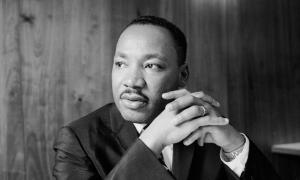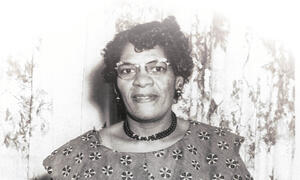article
1,946 Results
article
Mathematics in Context: The Pedagogy of Liberation

Social justice education isn’t limited to humanities courses. Two math educators explain how their commitment to equity informs the way they teach.
text
Informational
Freedom's Main Line
One of the earliest assaults on segregated transit in the South occurred in Louisville, Ky., in 1870-71. There, the city’s black community organized a successful protest that relied on nonviolent direct action, a tactic that would give shape to the modern civil rights movement nearly a century later.
December 6, 2017
article
Toolkit for Talking About Racism and Police Violence with Students

No matter how educators identify or how long they have been teaching, it’s critical that they reflect on their ability to discuss race, racial (in)equality and racism—past and present—with students. This toolkit offers strategies for how educators can engage in this reflection and strengthen their practice.
text
Literature
Saffron Dreams
Although her husband died in the September 11 attack, Arissa is targeted for being Muslim. In this excerpt, she is held up by a group of men who berate her and threaten to kill her until they realize she is pregnant.
July 7, 2014
article
text
Informational
Covering
To cover is to downplay aspects of our identity that make us different from mainstream society. Kenji Yoshino argues that, although we live in an age where the law prohibits many forms of discrimination, people still face pressure to hide who they are.
July 2, 2014
article
Making King Real for Students Today

On the anniversary of Dr. King's assassination, we encourage teachers to break through the simplistic King narrative and share his righteous anger at poverty and militarism.
article
Students Know the College-Admissions System Is Rigged

When news of the college-admissions cheating scandal broke this week, young people knew it was wrong and many weren’t surprised. Here’s how you can help them tap into their power in spite of it.
article
